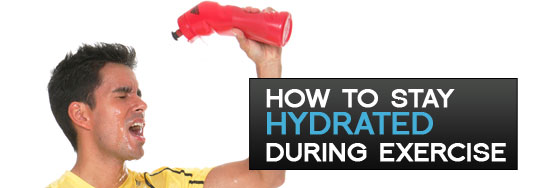Its Panas!! How to stay hydrated?

Wow it definitely has been extremely hot and humid these days in Kuala Lumpur, Malaysia. Heat and humidity is definitely not a good combination when it comes for sports and exercise.
I should know, I have been playing a lot of tennis these last couple of days and the sun, heat and humidity is pushing me to the limits.
How the heat effects your body?
Now if you are like me and exercise or compete outdoors in these extreme conditions, you must take care of your body's hydration needs. Our bodies contain about 60% water. Give it too little or too much, and you are in trouble.
Studies have found that a loss of two or more percent of one's body weight due to sweating is linked to a drop in blood volume. When this occurs, the heart works harder to move blood through the bloodstream.
In hot and humid conditions, one looses a lot of fluids through sweat - sweat helps to cool the body through condensation but once temperatures reach the 30-35 degrees Celsius like here in Malaysia couple with high humidity, sweat will accumulate on the skin - here, there is no condensation and your body does not cool down. Now add if you don't compensate your fluid loss with water intake, this will leave you in heat distress - leads to cramping, heat exhaustion or heat stroke.
Heat stroke occurs when the body is exposed to an excessive amount of heat and becomes unable dissipate the heat through sweating. When heat stroke happens, the body’s temperature rises rapidly, the body loses its ability to sweat, and it is unable to cool down.
Body temperature can rise to 106°F or higher within 10 to 15 minutes, and at 106°F brain death begins.If emergency treatment is not provided, heat stroke can cause death or permanent disability in humans and animals.
Simple Urine Test
Monitoring urine volume output and color. A large amount of light colored, diluted urine probably means you are hydrated; dark colored, concentrated urine probably means you are dehydrated.
Hydration During Exercise Guidelines
Now since hydration needs vary from person to person, there is no one solution for everyone. Your thirst your bodies way of telling you what it needs. So listen to it.
But according to some research I did, following are some simple guidelines for you:
Hydration Before Exercise
* Drink about 400-500ml, 2-3 hours before exercise
* Drink 200-300ml, 10-15 min before exercise
Hydration During Exercise
* Drink 200-300ml, every 10-15 min during exercise
* If exercising longer than 90 minutes, drink 200-300ml of a sports drink (with no more than 8 percent carbohydrate) every 15 - 30 minutes.
Hydration After Exercise
* Weigh yourself before and after exercise and replace fluid losses.
* Drink 400-500ml water for every 1 lb lost.
* Consume a 4:1 ratio of carbohydrate to protein within the 2 hours after exercise to replenish glycogen stores.
